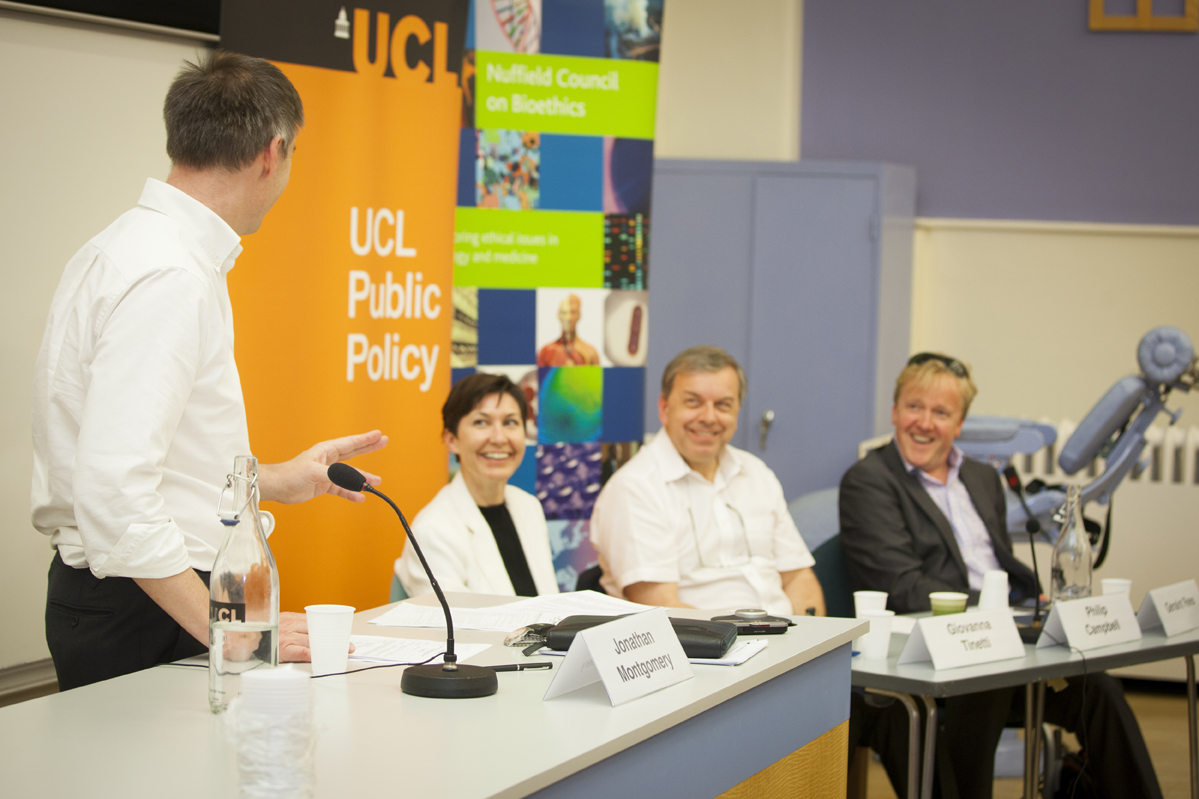News
Scientific research culture events now underway
Our series of events on the culture of scientific research got off to a flying start last week, with lively discussions taking place at the University of Sheffield on 18 June and University College London on 20 June.
In Sheffield, Hugh Whittall chaired a panel comprised of David Grundy, Linda Evans and Chris Littlewood who spoke to an invited audience of researchers at a wide range of career stages. The panel presented some areas for discussion, including challenges involved international collaboration, the power of journal impact factors, and consequences of the huge time pressures placed on researchers today. Positive aspects of UK research, such as innovative funding schemes, were also highlighted. The participants went on to discuss issues around the effectiveness of the peer review process and whether it was appropriate for reviewers to remain anonymous, and the role of competition for resources and recognition in research.

The London session (pictured above) was facilitated by Jonathan Montgomery and began with presentations from Geraint Rees, Philip Campbell and Giovanna Tinetti. The 60 audience members, who came from across the sciences and from a diverse range of organisations, then had around an hour for discussion.
The issue of the lack of time available to scientists was a recurring theme, with concerns raised about the exponential increase in the numbers of scientists working in the UK and the corresponding increase in literature that they are expected to read and review. Teaching also took up large amounts of time but was not rewarded in the same way as research. This lack of time meant there was less opportunity to check data and mentor younger staff. The focus on using the publication of high impact journal articles as a measure of success was also discussed at length, and was thought to be an imperfect measure of research quality and a potential cause of corner cutting. However, it was acknowledged that other forms of research metrics could also create perverse incentives for scientists.
In Sheffield, Hugh Whittall chaired a panel comprised of David Grundy, Linda Evans and Chris Littlewood who spoke to an invited audience of researchers at a wide range of career stages. The panel presented some areas for discussion, including challenges involved international collaboration, the power of journal impact factors, and consequences of the huge time pressures placed on researchers today. Positive aspects of UK research, such as innovative funding schemes, were also highlighted. The participants went on to discuss issues around the effectiveness of the peer review process and whether it was appropriate for reviewers to remain anonymous, and the role of competition for resources and recognition in research.

The London session (pictured above) was facilitated by Jonathan Montgomery and began with presentations from Geraint Rees, Philip Campbell and Giovanna Tinetti. The 60 audience members, who came from across the sciences and from a diverse range of organisations, then had around an hour for discussion.
The issue of the lack of time available to scientists was a recurring theme, with concerns raised about the exponential increase in the numbers of scientists working in the UK and the corresponding increase in literature that they are expected to read and review. Teaching also took up large amounts of time but was not rewarded in the same way as research. This lack of time meant there was less opportunity to check data and mentor younger staff. The focus on using the publication of high impact journal articles as a measure of success was also discussed at length, and was thought to be an imperfect measure of research quality and a potential cause of corner cutting. However, it was acknowledged that other forms of research metrics could also create perverse incentives for scientists.
- Find details of upcoming events in this series
- A note of the all the discussion meetings will be published toward the end of 2014, together with a summary of the findings of all the activities of the project
- Read Anna Wilkinson's blog post 'Discussing science culture: replication, publication, and more…'
Share